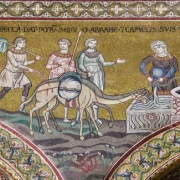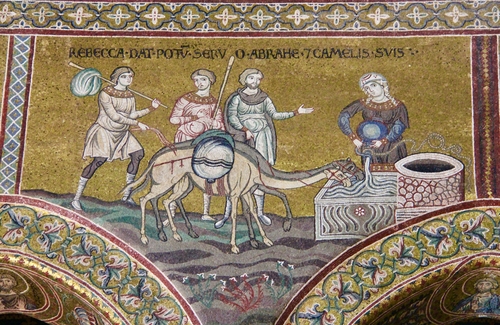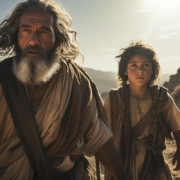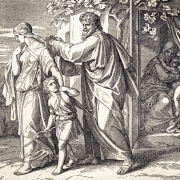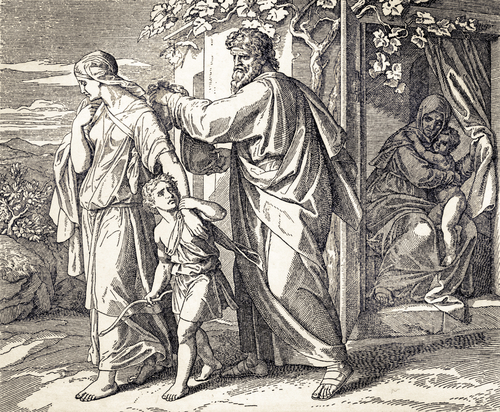The Ladder to Heaven
Then he dreamed, and behold, a ladder was set up on the earth, and its top reached to heaven; and there the angels of God were ascending and descending on it. (Genesis 28:12)
The sins of Isaac, Rebekah, Esau, and Jacob all combined to make a big mess, so big that Jacob had to flee from his twin brother who had vowed to kill him. Jacob traveled eastward toward Haran, in the ancestral lands of his grandfather Abraham (Genesis 11:31-32) and his mother Rebekah (Genesis 24:3-4).
Traveling alone through the desolate landscape, Jacob had a significant dream as he used a stone for a pillow. One can only imagine the strange flood of feelings in Jacob at this moment: the fear, the loneliness, the isolation, the excitement, and the anticipation. This was an important time in Jacob’s life.

Jacob’s dream presented an interesting image. He saw a ladder on the earth, one that reached to heaven. Jacob saw in his dream the angels of God going up and down (ascending and descending) on the ladder.
Through this dream, God told Jacob that there was a way to access heaven – that heaven and earth were not permanently and completely separated – there was access to heaven. Jacob now knew God was closer than he had ever before believed and there was real interaction between heaven and earth. Heaven is not shut up, and God concerns Himself with what happens on earth. All this was a life-changing revelation to Jacob, who previously seemed to have litter interest in or regard for God.
In the New Testament, Jesus made specific reference to this dream of Jacob when He said to Nathanael: Most assuredly, I say to you, hereafter you shall see heaven open, and the angels of God ascending and descending upon the Son of Man (John 1:51). Here, Jesus said that He was the fulfillment of the ladder that Jacob saw in his dream. Jesus is humanity’s access to heaven, and Jesus is how heaven comes down to people and by which people can go to heaven. Jesus the Messiah is this ladder, the way to heaven.
Remember the great words Jesus spoke to His disciples the night before He went to the cross: I am the way, the truth, and the life. No one comes to the Father except through Me (John 14:6). Jesus didn’t say that He knew the way; Jesus said that He was the way. Jesus didn’t say that He pointed to the way; Jesus said that He was the way.
Jesus is the ladder, the way to God – and there is no other ladder or way. Jesus is the bridge between heaven and earth, and the way was made through His own sacrifice. it is in this sense that Jesus could say in John 1:51 that those angels were ascending and descending upon the Son of Man. He made the way Himself, by His own sacrifice.
In Jesus, you have access to heaven (Romans 5:1-2, Ephesians 2:6).







